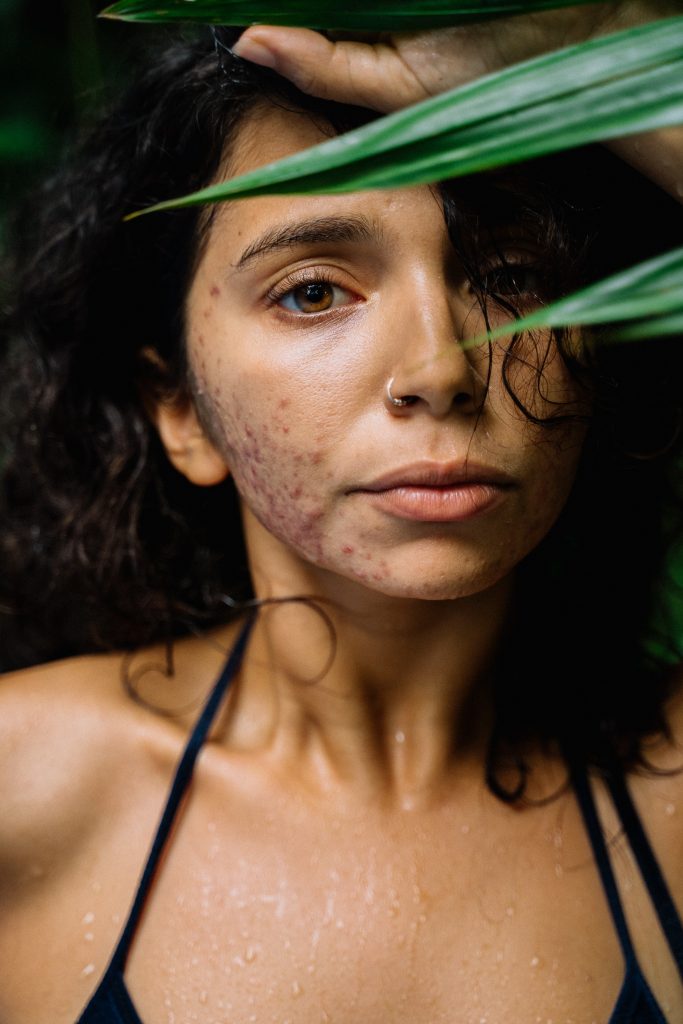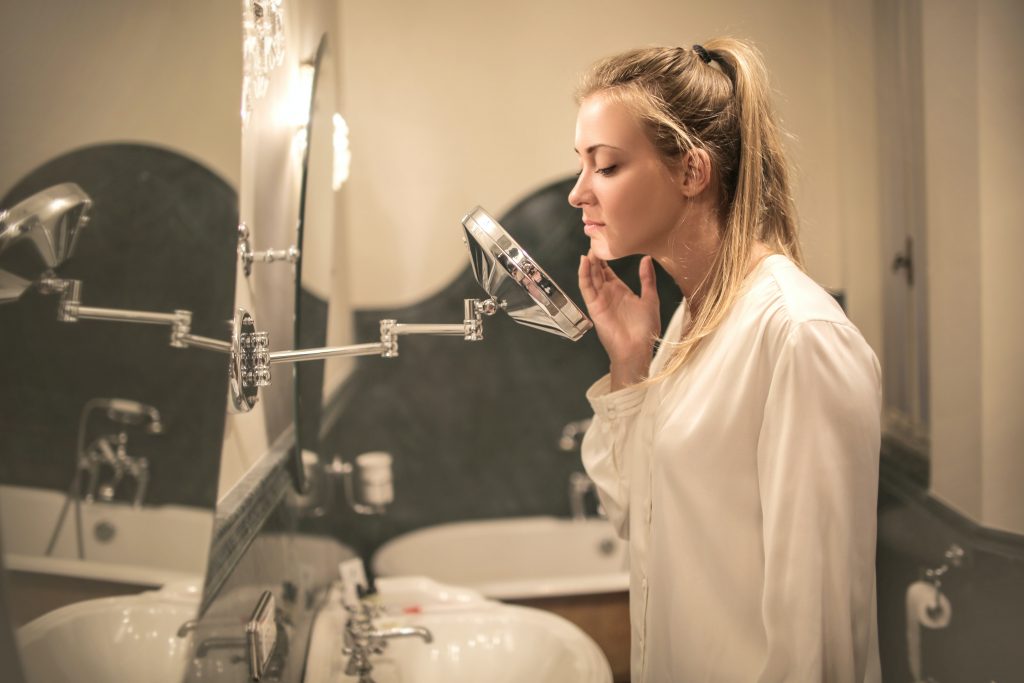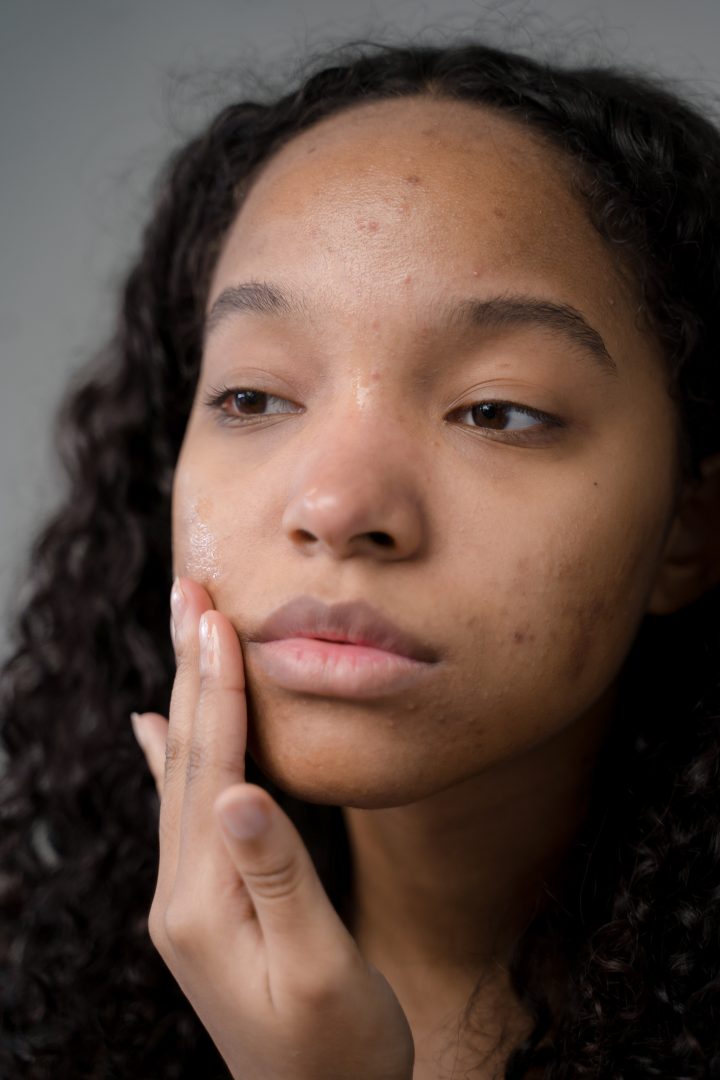Acne that is painful, puffy, and red usually occurs on your shoulders, chest, back, and face is known to be inflammatory. It can be in the form of cysts, nodules, or abscesses that contain excess oil, dead skin cells, pus, and bacteria.
You can treat and prevent acne breakouts, especially inflammatory acne, using the right CBD skincare treatments you can purchase over the counter. However, most individuals dealing with inflammatory acne are recommended to consult a healthcare practitioner, such as a dermatologist.
What is Inflammatory Acne?
Compared to non-inflammatory acne, an inflammatory one is more serious and can lead to severe pain, swelling, and too much redness. This type of stress acne penetrates deeper into the skin. And that causes deep acne scars and discomfort.
As mentioned, inflammatory acne may appear as deep cysts or little red bumps. The back, chest, neck, and face are the most common places for these pimples. However, they may also develop on other body parts with oil glands.
Adults, teenagers, and youngers may all experience inflamed acne. Fortunately, some home care methods and therapies are developed, even though some studies say that inflamed acne is incurable. With these treatments, anyone with inflamed acne can regain their self-esteem and solve the emotional distress it has caused.

Distinguish Inflammatory Acne From Other Acne
You can say that you have inflammatory acne if your pimples are filled with pus. Since it contains pus, you may feel discomfort and pain. Beyond that, it is more likely to look swollen. One example of inflammatory acne is cystic acne.
There are different ways you can do to determine if you have inflamed acne. However, one method you can use is by looking at it in the mirror. Inflammatory acne may be in the form of pustules. These are the elevated bump that is slightly elevated on your skin.
Aside from pustules, inflamed acne may also come in nodules. These are hard and large pimples that are seated deep inside your skin. Other signs you may consider that will help you determine if you have inflamed acne are the following:
- Tender or painful cysts
- Swollen acne
- Red, white, or yellow pus
- The bump is red and swollen
Treatments for Inflammatory Acne
If you have inflammatory acne, you have probably tried different products hoping it will be gone the next day. One reason your inflamed acne does not improve is that you use the wrong skin care products.
The good thing is that some dermatologists have shared their secrets for treating inflamed acne of their patients. And according to them, you can solve this skin issue using over-the-counter creams and cleansers.
However, it is worth noting that some individuals may need medical attention from a certified dermatologist to get rid of their acne and prevent further breakouts. Inflammatory acne can be treated using extraction, oral, and topical treatments. The following are some of the common topical products to get rid of and prevent inflamed acne:

- Products contain dapsone, erythromycin, and clindamycin
- Salicylic acid
- Retinoids, such as adapalene and tretinoin
- Niacinamide is a chemical formulation of vitamin B3
- Benzoyl peroxide
- Azelaic acid

The following are the oral treatments that your dermatologist may prescribe:
- Isotretinoin
- Hormonal therapy, such as anti-androgen drugs like spironolactone or birth control pill
- Dapsone
- Antibiotics, such as tetracycline and doxycycline
Aside from topical and oral treatments, surgical procedures are also for reducing or minimizing inflamed acne blemishes. In line with that, work with a professional dermatologist to perform these procedures. Otherwise, your pores might be damaged, which can cause further development of acne blemishes.
The following are some of the procedures for treating inflamed acne:
- Light therapy for removing acne bacteria
- Cortisone injection
- Acne surgery that involves small scalpels and needles for milia and blackhead extraction
Best practices to do
If you have been suffering from persistent acne, you know how difficult it is to bring back the smoothness of your skin. Nonetheless, while you are trying to get rid of the inflamed acne on your face, you are also looking for some products and tips that could help you prevent future breakouts.
It is also worth noting that there is no permanent cure for acne. However, there are ways you can do to lessen the outbreaks and maintain your healthy skin. Here are some of the tips to remember:
Wash Your Face Properly: Your face is the most common spot for pimples. However, these breakouts may also arise elsewhere in your body. Acne is caused by Propionibacterium acnes. And the inflammation is caused by the bacteria’s conversion of fatty acids from the skin’s natural oil. This is why washing your face twice a day is important to maintain the balance of your skin oil.
Always Wear Moisturizers: If your skin is prone to acne, a moisturizer is the number one product you should always have. Moisturizers bring hydration that will counteract your skin dryness. When your skin is too dry, your skin may produce too much sebum. And moisturizers are designed to regulate sebum production, which leads to lesser acne.
Drink Lots of Water: When your skin is dehydrated, your oil glands produce more sebum. Skin discoloration and inflammation are exacerbated by dehydration. This will make your skin look lifeless and dull. Aside from using moisturizers, it is also a good practice to drink at least eight ounces of water per day. This is a simple way to keep your body and skin hydrated.
Limit Using Make-up: One common mistake in covering acne is using make-up. Although you can use make-up, it is important that you wash your face after. Aside from that, it is best to use a fragrance-free and non-comedogenic concealer or foundation to avoid aggravating your skin condition. You may also double cleanse to ensure that no make-up will remain deep-seated on your pores.
Voibon Tips
Follow these best practices, and your skin will thank you later on. Don’t forget to remember that the goal is to maintain your skin and go out acne-free.






